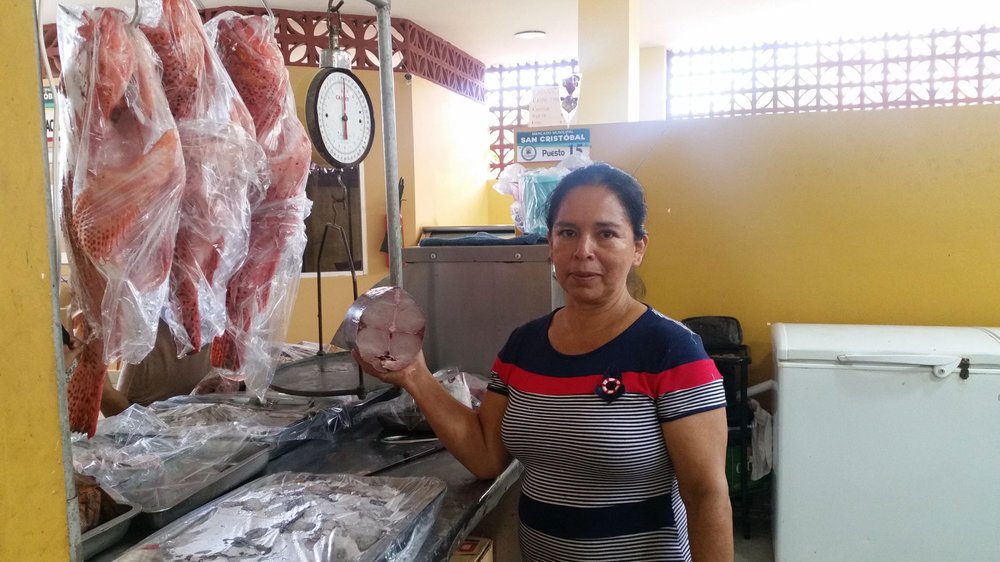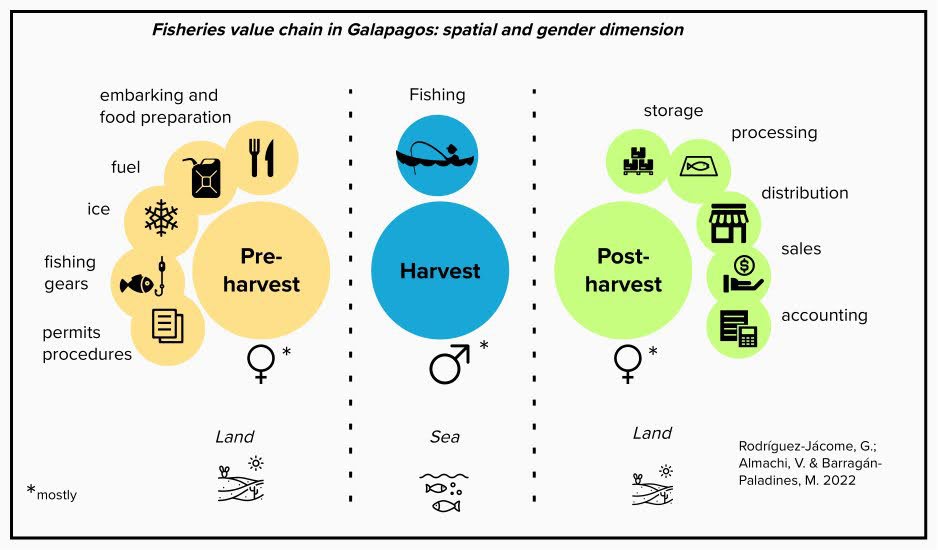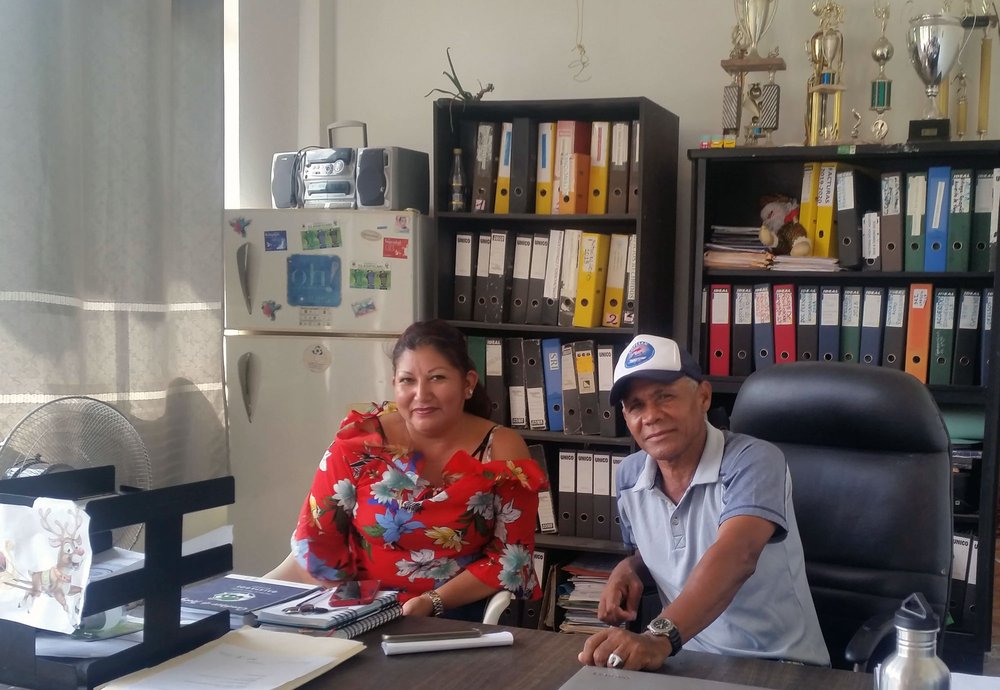Author: Gabriela Rodríguez Jácome
Did you know that artisanal fishing is not only carried out at sea? To make fishing possible, it is necessary to execute other activities on land, for instance: preparing food, fishing equipment, ice, as well as the processing and sale of fish. Galapagos women are in charge of carrying out these tasks on land while the men go out to fish. It is in this way that both men and women are essential to the artisanal fisheries in the archipelago and to ensuring the population’s food security.
“I like the peace and tranquility that the sea transmits to you. Therefore, I always say: for all the good and bad: the sea” (Fisherwoman and fisherman’s daughter, San Cristobal Island).
Despite this, fishing is still considered a male activity, hence, the valuable and necessary work that women do has been historically concealed. However, if we talk about sustainability, women are a key player: the gender roles assigned to women place them in the position of caregivers and protectors, due to their way of managing and handling resources differently from men.

Between January and March 2020, the CDF fisheries project team carried out research in the Galapagos Islands to understand the role of women in artisanal fisheries. The main results show that women carry out tasks before and after fishing as part of their land-based activities. The following graphic shows these tasks in detail:

Even though the harvesting task is mainly a male activity, we identified some women in Galapagos that carry out this task: four in Santa Cruz, one in Isabela, and two in San Cristobal. However, these women go fishing intermittently throughout the year and this is not their principal economic activity. As we see, there are just a few women that go fishing in the archipelago.
“¡Fishing is exciting! You go there and you get to see beautiful spots that impress you. It is not only the sea. When you sleep there you get to see the sunset and the sunrise. ¡It’s the most beautiful thing! There are some days when the sky is so clear, now it is a little dark, but there, in the middle of the sea the sky is very clear and the sunrise is the most beautiful you can see in your life, the same with the sunset” (Fish trader and fisherman’s wife, Santa Cruz).
But what happens with the rest of the women? Through several interviews in the field that the team carried out, the results indicate that the great majority of women in the Galapagos Islands don’t want to go fishing. It is important to understand that most of them are migrants from the continent, from zones far away from the sea, and have no fishing background. Besides, they consider the sea a dangerous space and fishing as an activity that requires strength and sacrifice. Therefore, they don’t feel capable of going fishing because they have the impression that they are not strong enough to do it like men.

Due to this, women remain closer to the land and to the tasks they can carry out from there to relieve the workload of their fishermen's family members. This means that women carry out land tasks as an extension of their role as caregivers, mothers, wives, daughters, nieces, etc., which is the reason why, in most cases, these tasks are not paid.
“I used to help my husband when he went fishing. He used to come home tired and he had no time. Therefore, I was in charge of offering the fish to the people who needed it” (Fisherman’s wife, Isabela Island).
“When he used to go in the morning, I had to wake up at 3-4 am. Sometimes he used to come back at midnight or later. I used to wake up to prepare some food for him, wash his clothes, and everything else. When he came home, I had to prepare his clothes, his food and such things” (Fish trader and ex fisherman's ex-wife, Isabela Island).
Therefore, the harvesting tasks remain a male activity and the selling has turned into a female task in the Galapagos’ fisheries. The reason for this is that women are considered to have better customer convincing skills than men. This way, the division of labor in the artisanal fisheries in Galapagos is built and sustained, where women carry out tasks on land and men in the sea.
Finally, in Galapagos, there is still a big challenge to value the roles of men and women in the artisanal fisheries value chain. Their capacities and strength in connection to each one of the phases of pre-harvesting, harvesting, and post-harvesting can be strengthened if we consider the needs of each and their appropriation of spaces, not only “at sea” but also “on land”.
“For me, fishing is very important and we need to respect the fishing season, so that there is still product for the coming generations, for the sons and the grandsons” (Woman working in the administration area of a fishermen’s cooperative, Santa Cruz).
This research is part of the Sustainable Fisheries Promgram - Socioecology, Assessment and Management of Fisheries”.
For more information about some events linked to gender themes in the Galapagos artisanal fisheries:
- Webinar about “Gender equality on fisheries” co-organized by COBI, COPES-PROMAR, FCD, MAGMA. On the ocassion of the day for the elimination of violence against women 2020.
- Webinar “Women’s experiences implementing Small-scale Fisheries Guidelines” Co-organized by TBTI, COBI y FCD for the Small Scale Fisheries Open House - World Oceans Week 2021.





